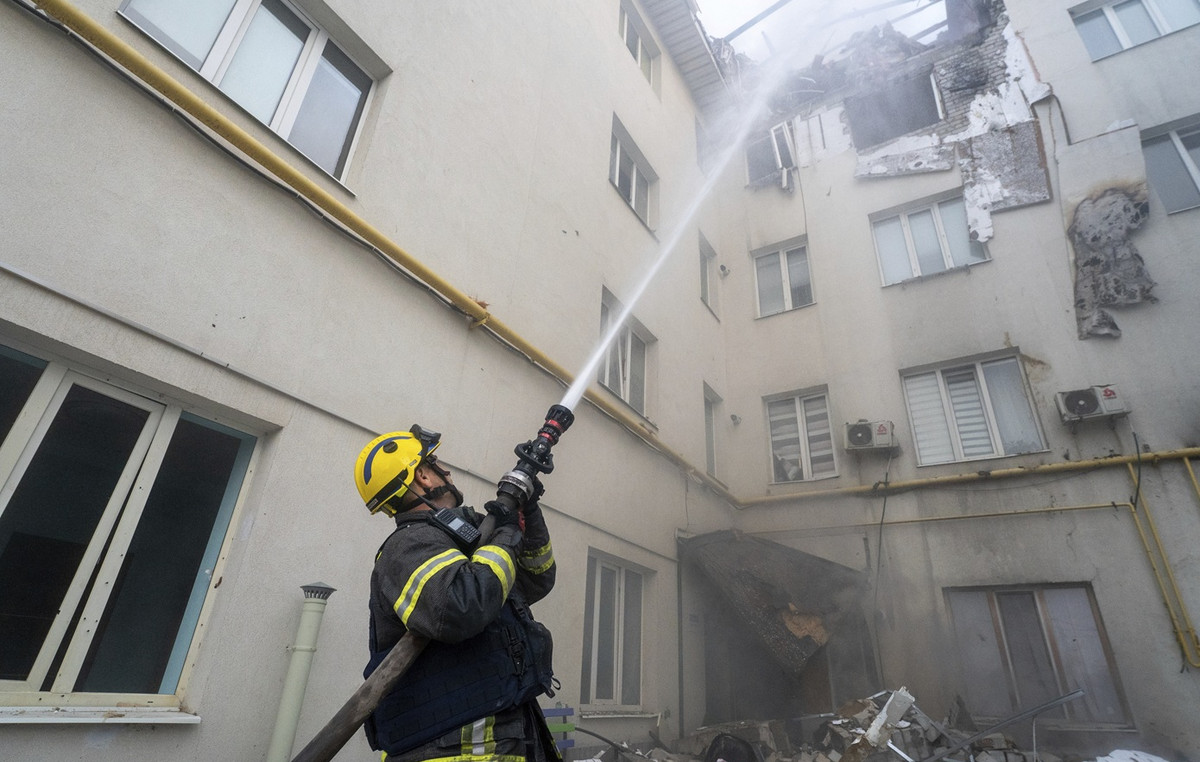Of the five communist countries in the world — China, Vietnam, Laos, North Korea and Cuba — only one voted against the resolution condemning Russia at the UN General Assembly: the North Koreans. The other communist countries abstained in the vote this Wednesday (2) in the plenary of the United Nations.
The resolution condemning Russia for the invasion of Ukraine was supported by Brazil. The bill passed with 141 votes in favour, 5 against and 35 abstentions.
No North Korean representative has spoken at the UN, but according to the North Korean news agency KCNA, the country’s authorities blame the conflict on “hegemonic politics” and “arrogance” by the United States and the West.
“The root cause of the crisis in Ukraine lies entirely in the hegemonic politics of the US and the West, which impose themselves with arrogance and abuse of power against other countries,” the news agency said, citing a Foreign Ministry spokesperson not identified.
North Korea has accused Washington and its allies of “ignoring Russia’s reasonable and legitimate demands” for legally backed security guarantees.
China’s abstention and the mediation role
China, one of the countries that abstained, said its stance was “consistent and unequivocal”. The communist giants defended that Ukraine’s territorial integrity must be maintained and that it is willing to broker negotiations for a ceasefire.
Still, he said the resolution did not consult all UN member countries or take into account the history and complexity of the current crisis.
Chinese UN Representative Zhang Jun congratulated Russia and Ukraine for showing their willingness to enter into a new round of negotiations. Finally, he pointed out that it is necessary to “abandon the cold war mentality”.
“It is necessary to abandon the idea of achieving security through the expansion of military blocs. It is important to respect and listen to the security issues of all countries,” said the ambassador. “Blindly accepting pressure and imposing sanctions and creating divisions will only complicate the situation,” he added.
Finally, Zhang Jun called on the international community to promote dialogue and consultation, something that China “is ready to play a role in”.
Laos bets on diplomacy
Abouparb Vongnorkeo, ambassador of the Lao People’s Democratic Republic, said his country had already suffered from the war and was aware of the negative consequences for “innocent lives”.
He congratulated governments that have provided humanitarian assistance to those affected, but stressed that Laos remains skeptical of “unilateral sanctions”, warning that they could impact innocent people, including the global community, especially during the pandemic.
Thus, Vongnorkeo called for a solution to be sought through diplomatic means and for concerns on both sides to be heard.
“It is our fervent hope that through this diplomatic effort, peace can be restored, the peace that forms the heart and soul of our Organization, the United Nations,” he said.
In a speech on Tuesday (1st), the Cuban ambassador to the UN, Pedro Luis Pedroso Cuesta, condemned the sanctions imposed against Russia and accused NATO of acting with “hypocrisy” in the conduct of the war with Ukraine.
“Cuba rejects this hypocrisy and this double standard in the stance of the North Atlantic Treaty Organization (NATO). In 1999, there was an aggression against Yugoslavia and the countries of Europe did not avoid the great loss of life for geopolitical reasons. The United States has used force on several occasions in sovereign countries to change regimes, interfering with the domestic politics of other countries,” Cuesta said.
Despite criticism of pro-Ukraine Europeans and Americans, the communist island chose to abstain.
Also on Tuesday, Vietnam’s Ambassador Hoang Giang Dang stressed that the current conflicts stem from “obsolete doctrines of power politics, the ambition for domination and the use of force in resolving international disputes.”
Giang Dang stated that conflicts “only cause suffering”, and stressed the importance of a resolution by diplomatic and peaceful means, respecting the political independence and territorial integrity of States, non-interference in the internal affairs of States and abstention from the threat or use of force. .
Finally, the ambassador called on other countries to encourage dialogue and provide humanitarian assistance for both Ukrainians and foreigners living in Ukraine.
The country led by Nicolás Maduro did not vote in today’s UN General Assembly.
Although considered by some to be a communist country, Venezuela is not technically under this type of regime, according to experts, nor is it self-declared communist.
Source: CNN Brasil
I’m James Harper, a highly experienced and accomplished news writer for World Stock Market. I have been writing in the Politics section of the website for over five years, providing readers with up-to-date and insightful information about current events in politics. My work is widely read and respected by many industry professionals as well as laymen.







